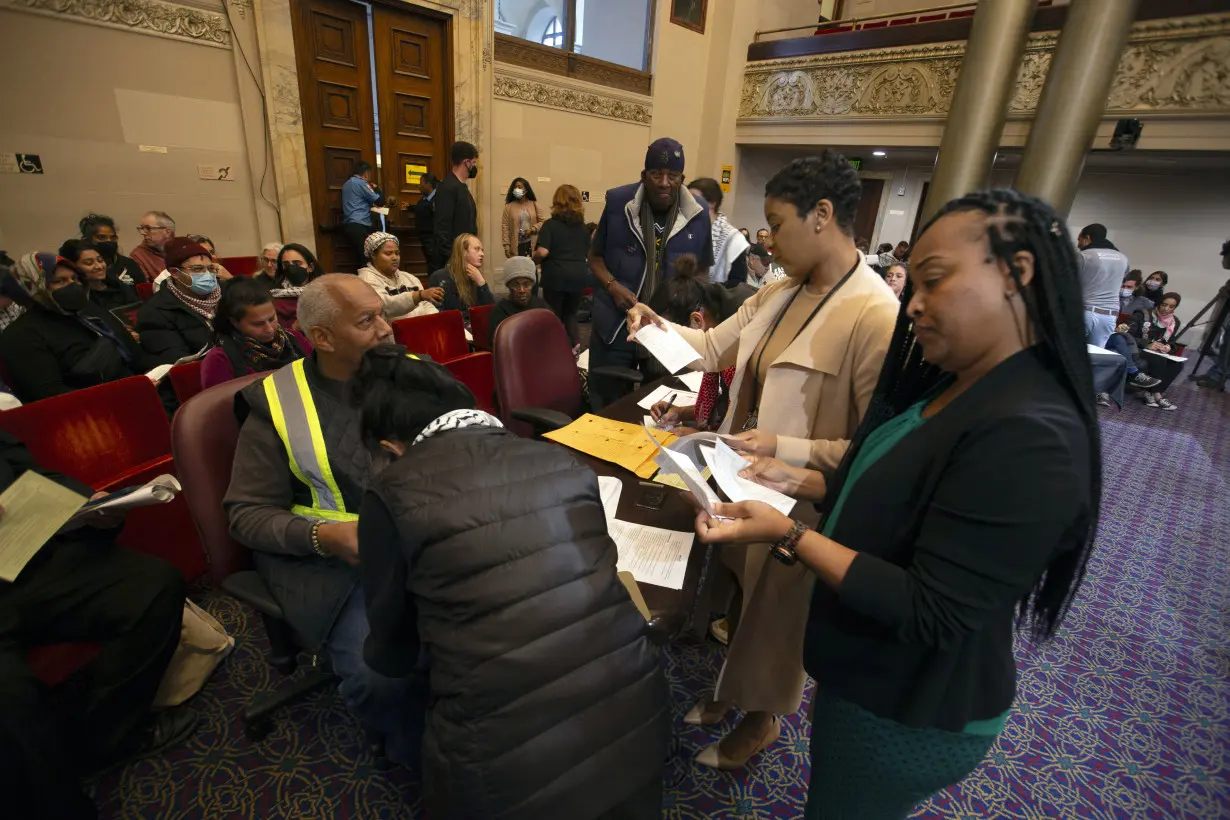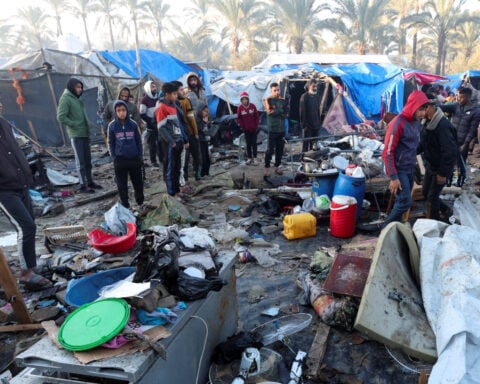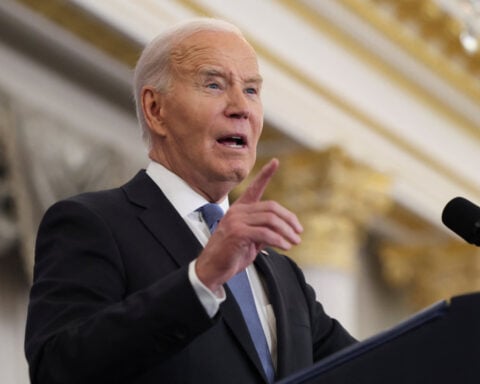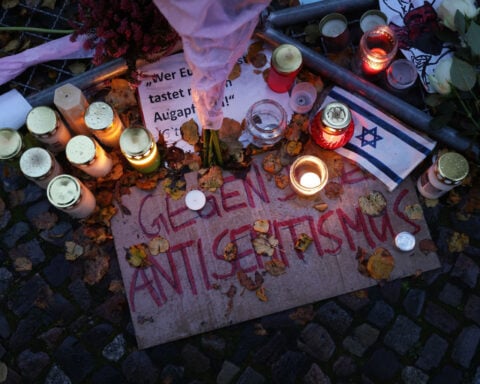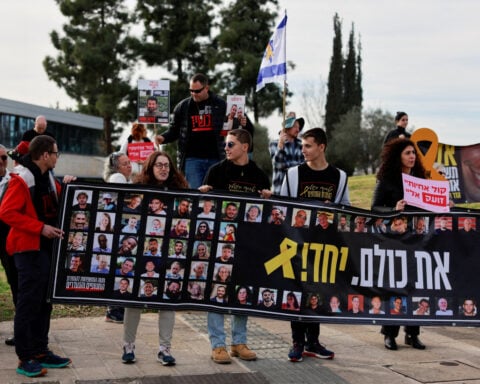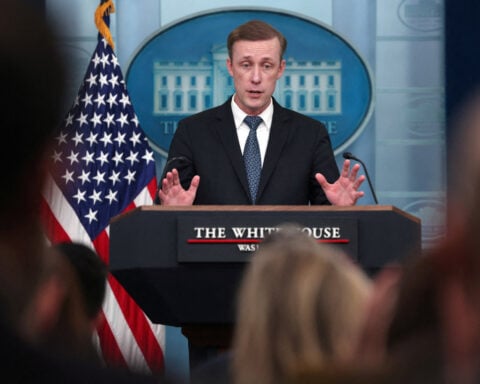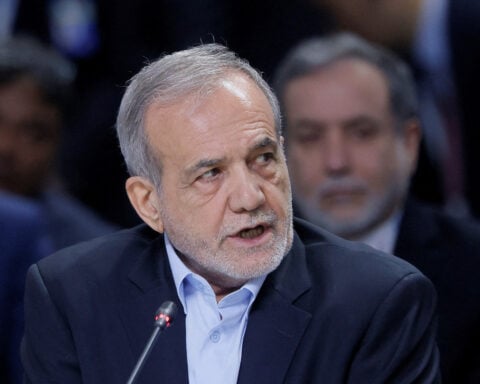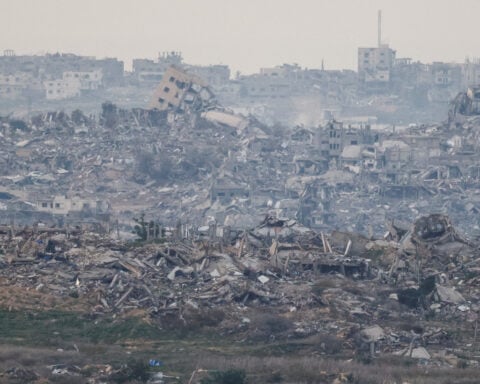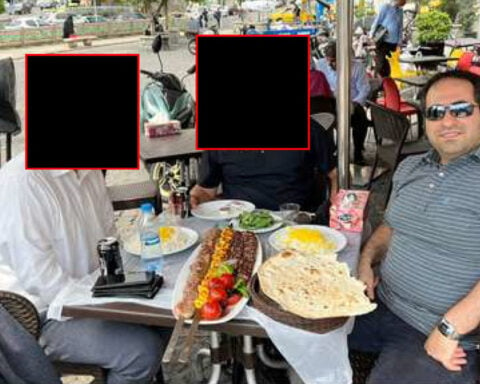OAKLAND, Calif. (AP) — Oakland's City Council on Monday passed a carefully crafted resolution calling for a cease-fire in the Israel-Hamas war after hours of hearing impassioned rhetoric about the deaths of thousands of civilians in Gaza.
The council in the California Bay Area city voted 8-0 in favor of a motion supporting a congressional resolution for a permanent ceasefire, along with the unrestricted entry of humanitarian assistance into Gaza and a restoration of basic services, as well as “respect for international law” and the release of all hostages.
Before the vote, the council voted 6-2 to reject proposed amendments by member Dan Kalb that specifically condemned killings and hostage-taking by Hamas, whose Oct. 7 attacks in Israel prompted the war that has devastated Gaza.
The motion was met by boos and angry shouts from the packed chamber.
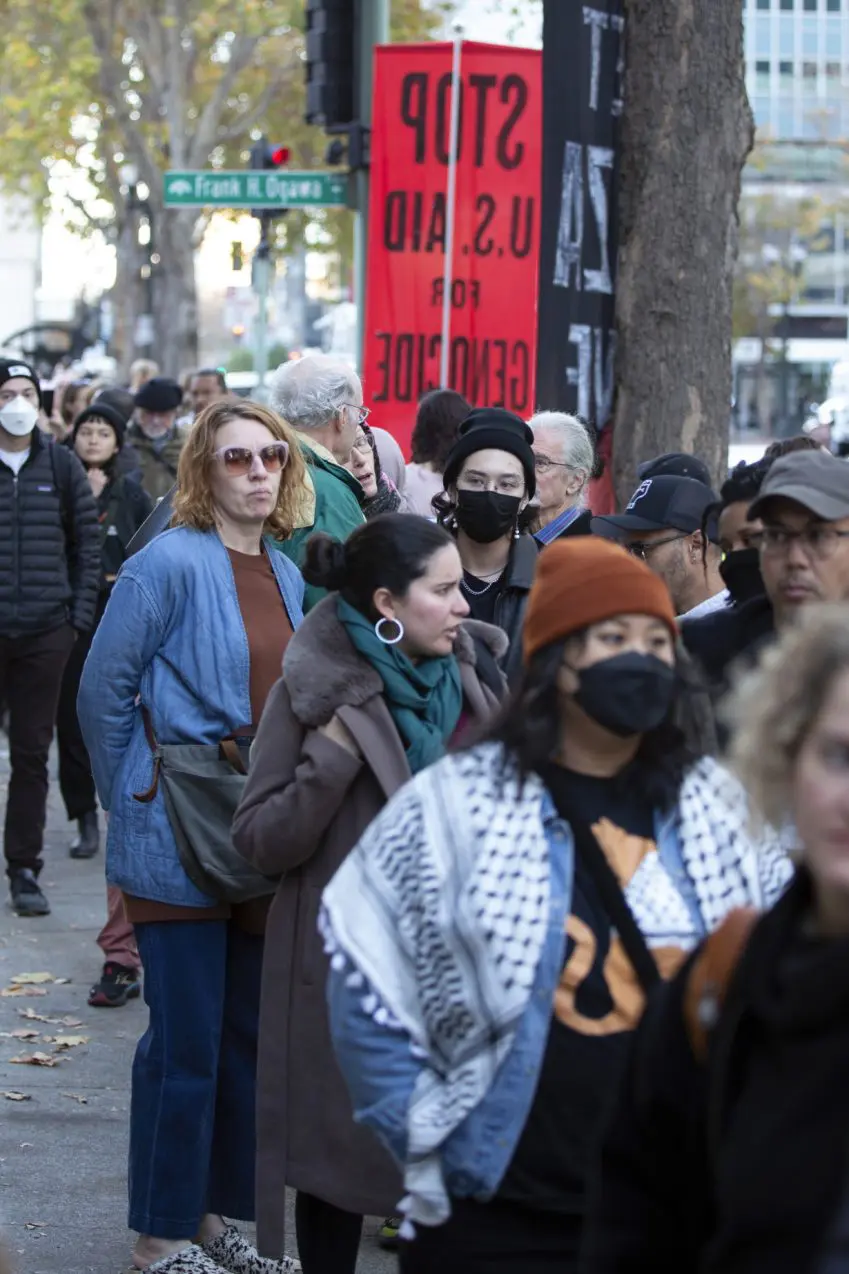
Kalb later went on to vote with the majority, noting that the unchanged resolution also didn't mention Israel.
In fact, councilmember Caroll Fife, who brought the resolution, said it went through four drafts and “intentionally attempted to de-politicize” the issue by “lifting up what we support and not what we condemn.”
She said the issue of a cease-fire was “deeply, deeply concerning” to Oakland residents and called for a moment of silence for the lives lost on both sides of the conflict.
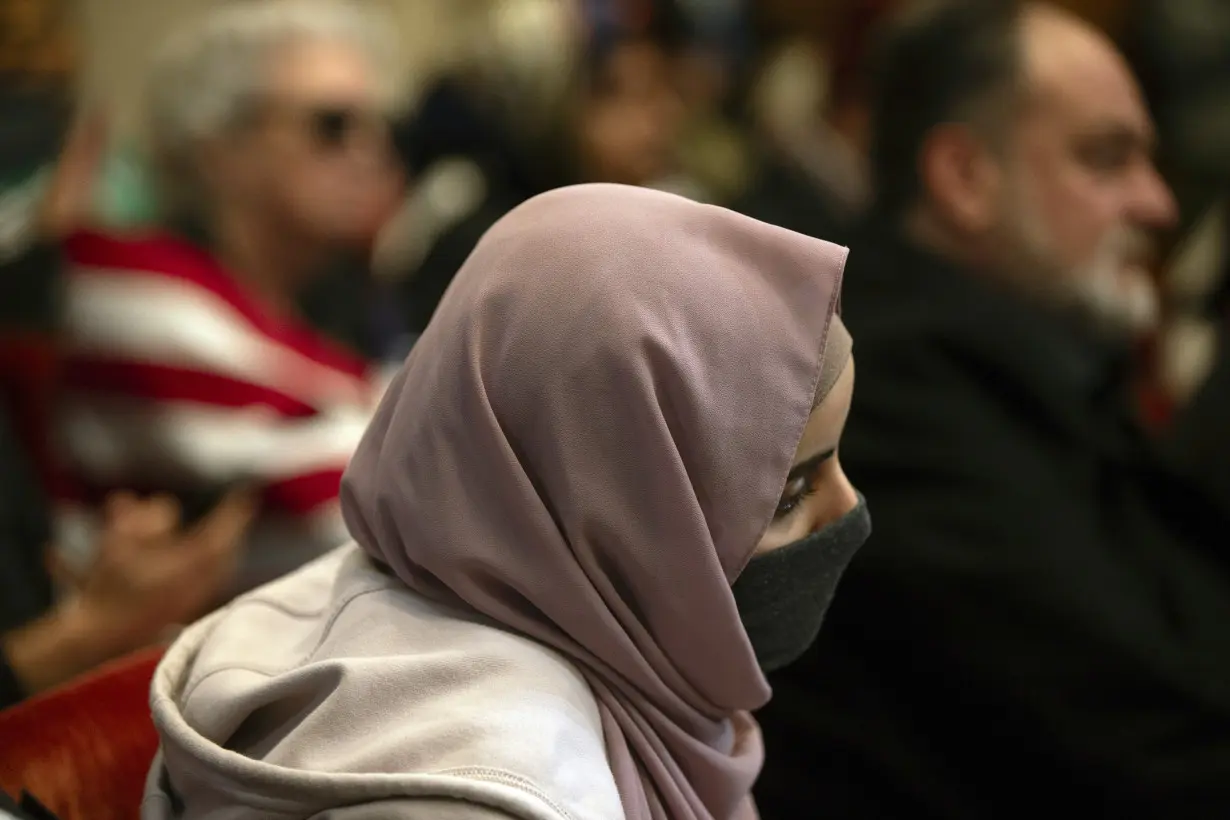
“I want Jewish children to live as much as I want Palestinian children to live,” she said.
The deaths of thousands of children, most of them in Gaza, weighed heavily on councilmembers.
“The number of children who have been killed just since Oct. 7 surpassed the number of children who have been killed in global conflicts over the past four years,” council President Nikki Fortunato Bas said.
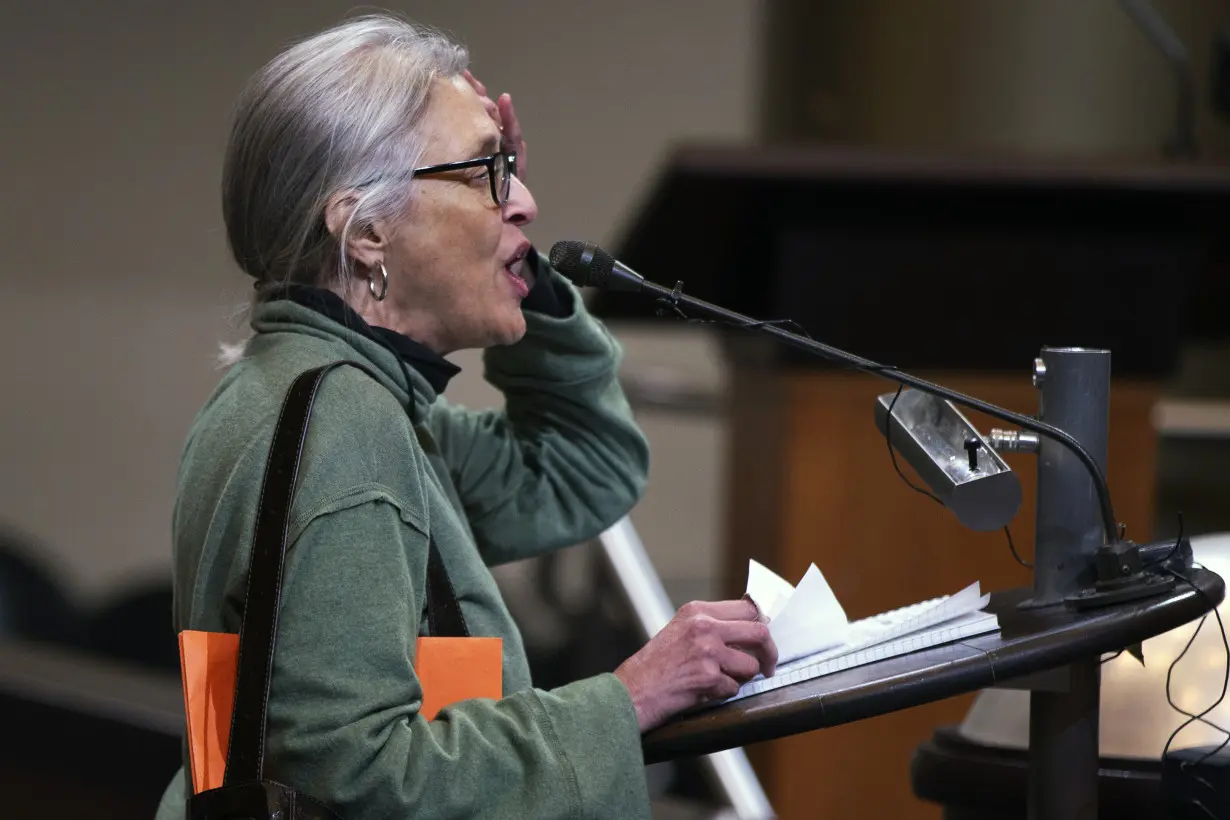
“I was absolutely mortified by seeing dead babies” on social media,” and a ceasefire would be crucial for stopping the killing, councilmember Kevin Jenkins said.
Harsher language was used by most of the dozens of speakers, including Jewish anti-Zionist activists, who argued for passage of the measure. They accused Israel of colonization of Palestine and of apartheid and ethnic cleansing of Palestinians.
“We’ve seen the targeting and massacring of civilians, of health care facilities, of hospitals and ambulances,” said one speaker, who identified herself as a recent medical school graduate. “Silence in the face of oppression and genocide, I don’t think, is an acceptable response.”
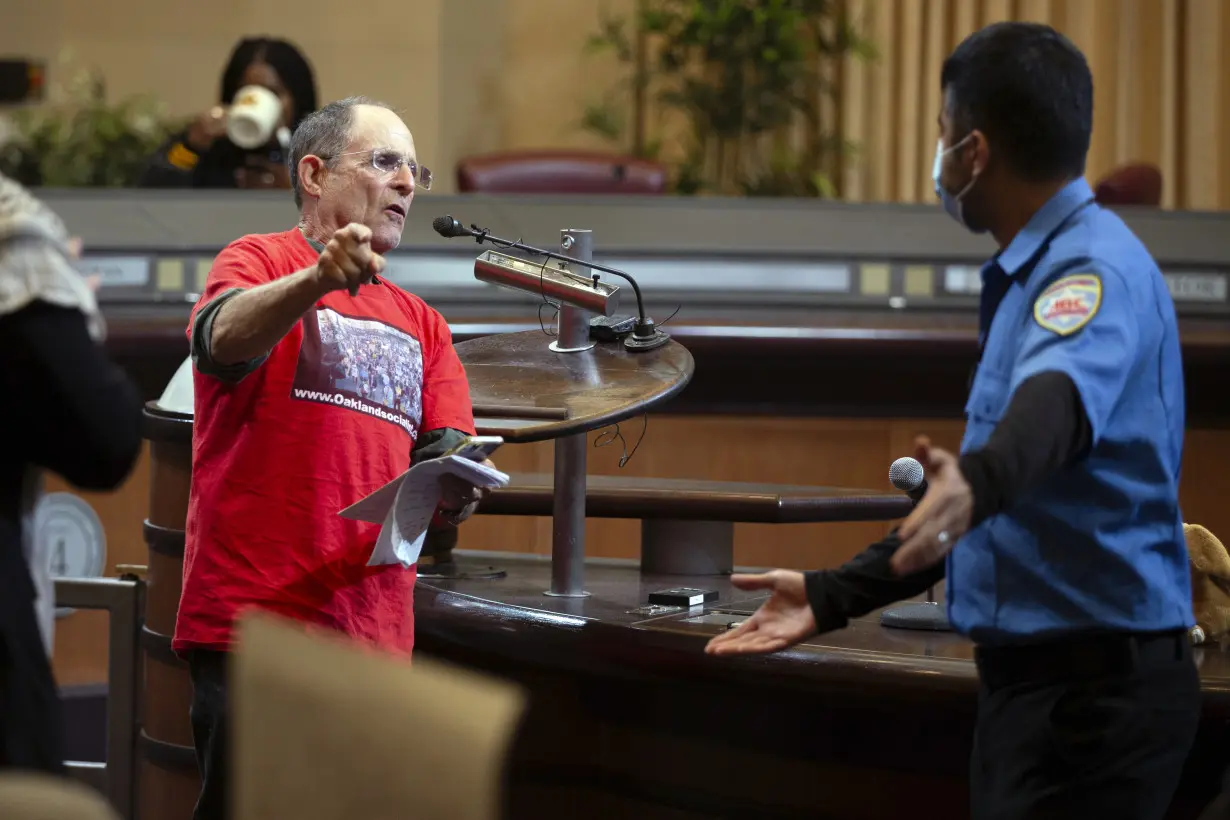
Others argued that Oakland taxpayers shouldn't be funding weapons for Israel when the money could be used for problems within the city, such as housing the homeless.
A temporary cease-fire between Israel and Hamas, which Qatar helped broker, is currently in place.
Similar resolutions have passed in Detroit and two other cities in Michigan, where a large percentage of Arab Americans live, as well as in Atlanta; Akron, Ohio; Wilmington, Delaware; and Providence, Rhode Island.
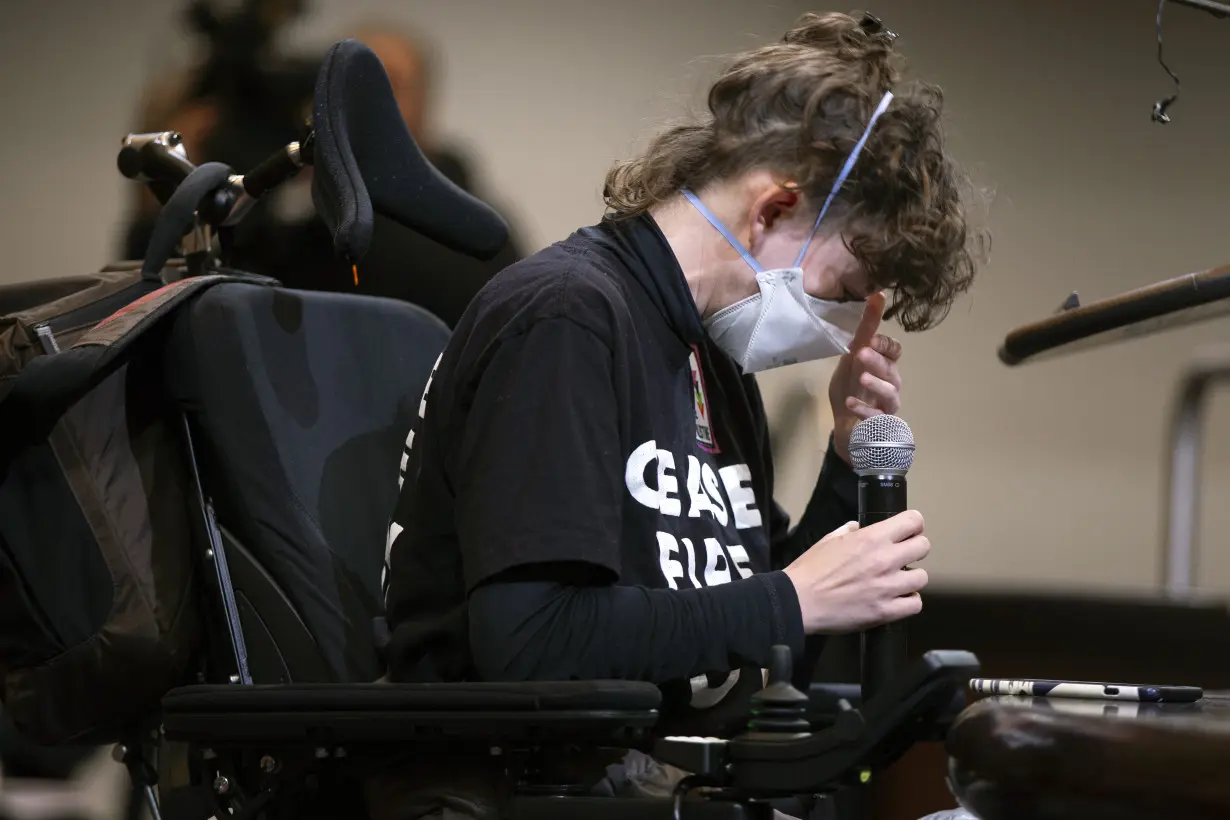
U.S. cities have been adopting resolutions regarding the conflict even though they have no legal role or formal say in the process, said David Glazier, who teaches constitutional law at Loyola Law School in Los Angeles.
“It raises an interesting question on where they are getting this mandate to speak for the people in their city when nobody elected a city council person because of their stance on Middle East peace,” he said.
In the nearby city of Richmond, an approved resolution calling for a cease-fire and accusing Israel of ethnic cleansing prompted more than five hours of heated debate in October. The city of Ypsilanti, near Detroit, approved a peace resolution but rescinded it amid backlash.
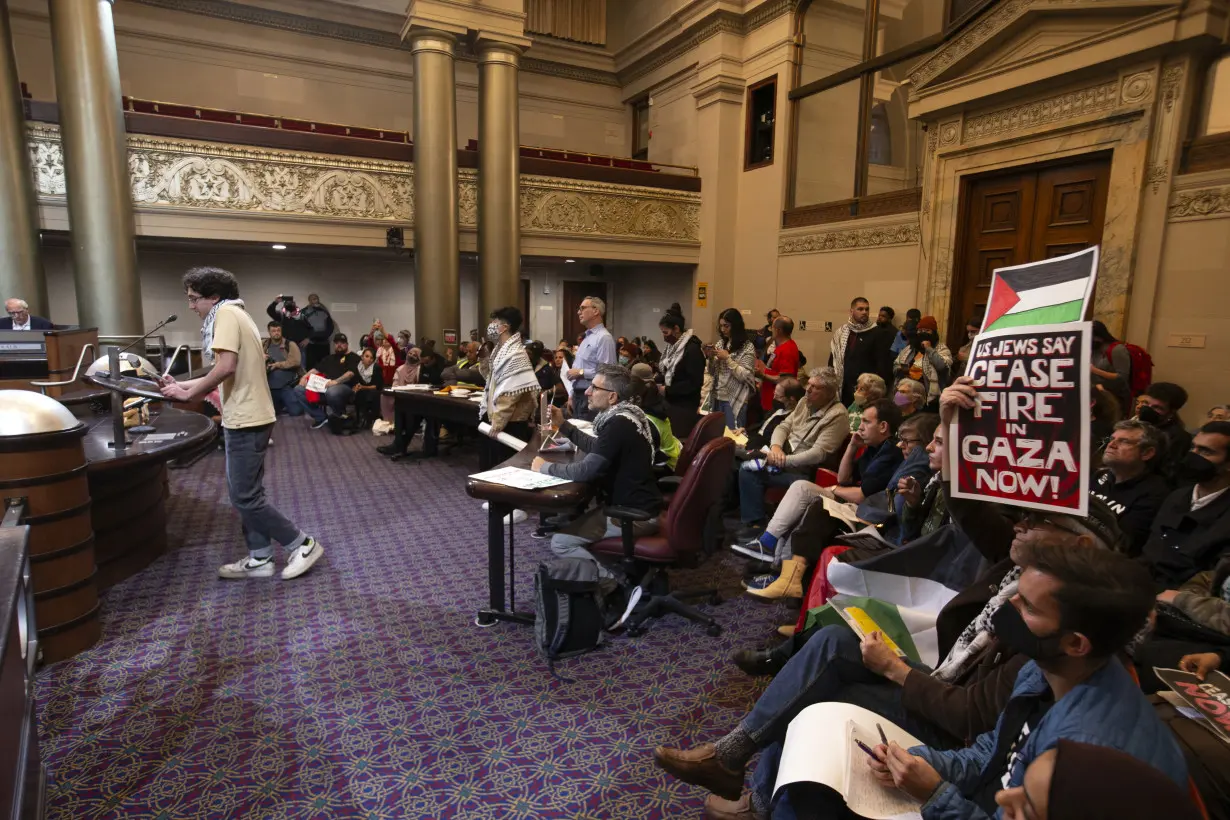
Oakland’s resolution demands “an immediate ceasefire; release of all hostages, the unrestricted entry of humanitarian assistance into Gaza; the restoration of food, water, electricity, and medical supplies to Gaza; and the respect for international law; and calls for a resolution that protects the security of all innocent civilians.”
Cities across the United States have increasingly been speaking up on matters that have long been relegated to diplomatic spheres, even working with local elected leaders abroad on what has been coined city-to-city diplomacy to tackle everything from housing refugees and asylum seekers to dealing with climate change.
Now, city councils are just the latest arena where intense debates over the war and the United States' support for Israel are playing out. Protesters calling for a cease-fire recently shut down traffic on a major bridge into San Francisco during an international economic summit, and the California Democratic Party recently canceled some events at its fall convention due to demonstrations.
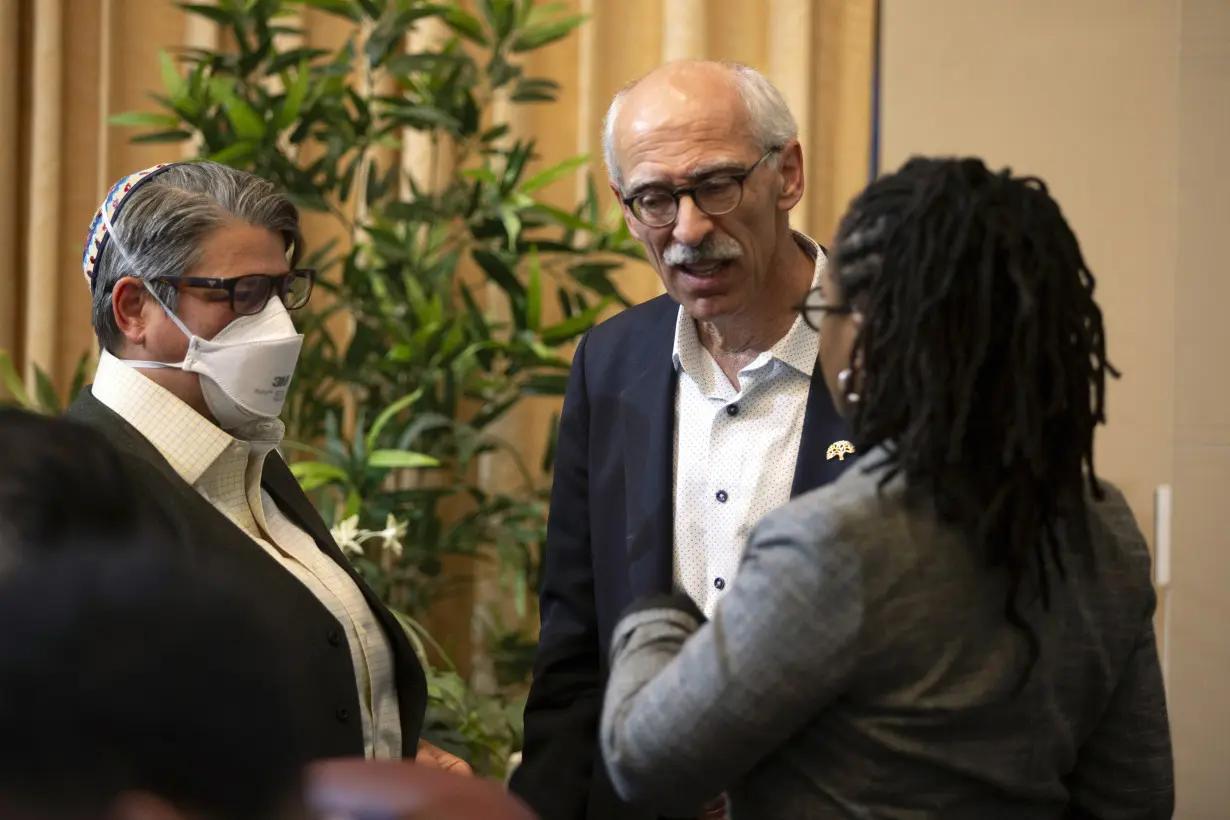
In some cases, the tension has turned violent. A pro-Palestinian protester was charged with involuntary manslaughter this month after a Jewish man died from head injuries following dueling protests in Southern California. He pleaded not guilty. In Vermont, a man has pleaded not guilty to three counts of attempted murder in the non-fatal shooting of three Palestinian men studying in the United States.
Oakland's action comes as Hamas has released some hostages captured in the Oct. 7 attack, while Israel has released some imprisoned Palestinians. Israel has said it would extend the cease-fire by one day for every 10 additional hostages released, but that it remains committed to crushing Hamas’ military capabilities and ending the group's 16-year rule over Gaza, which would likely mean expanding the Israeli military's ground offensive.
The war started after Hamas broke through Israel’s high-tech “Iron Wall” on Oct. 7 and launched an attack that left more than 1,200 Israelis dead. Hamas also took nearly 240 people hostage.
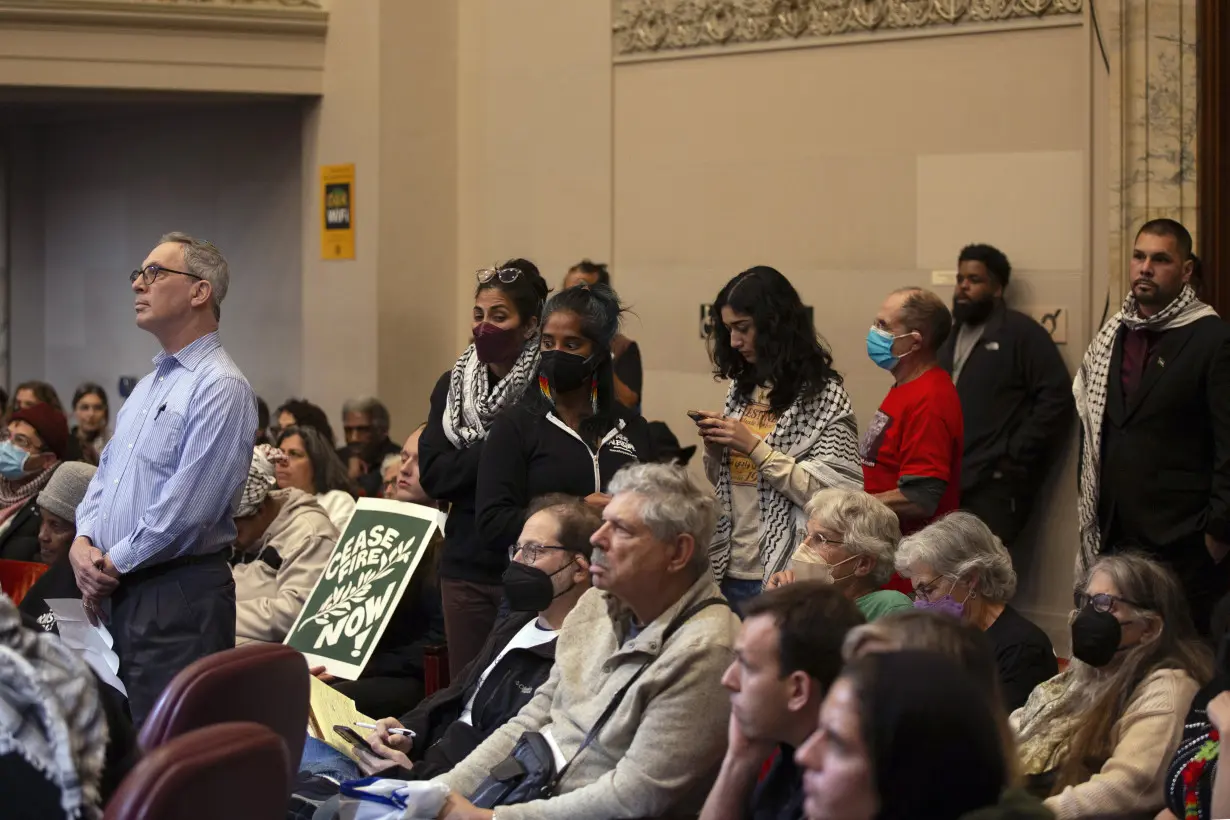
More than 13,300 Palestinians have been killed since the war began, roughly two-thirds of them women and minors, according to the Hamas-controlled Health Ministry in Gaza.
___
Jablon reported from Los Angeles. Associated Press journalist Julie Watson in San Diego contributed to this report.
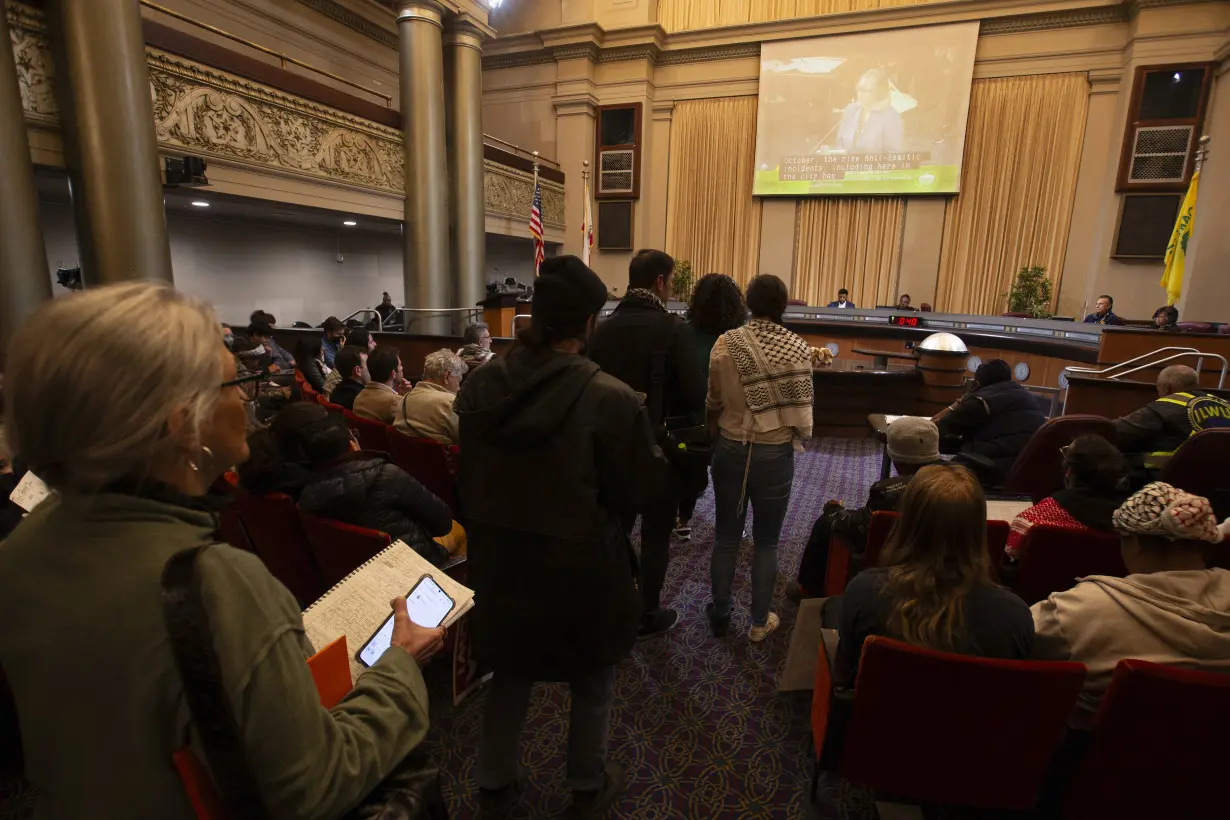
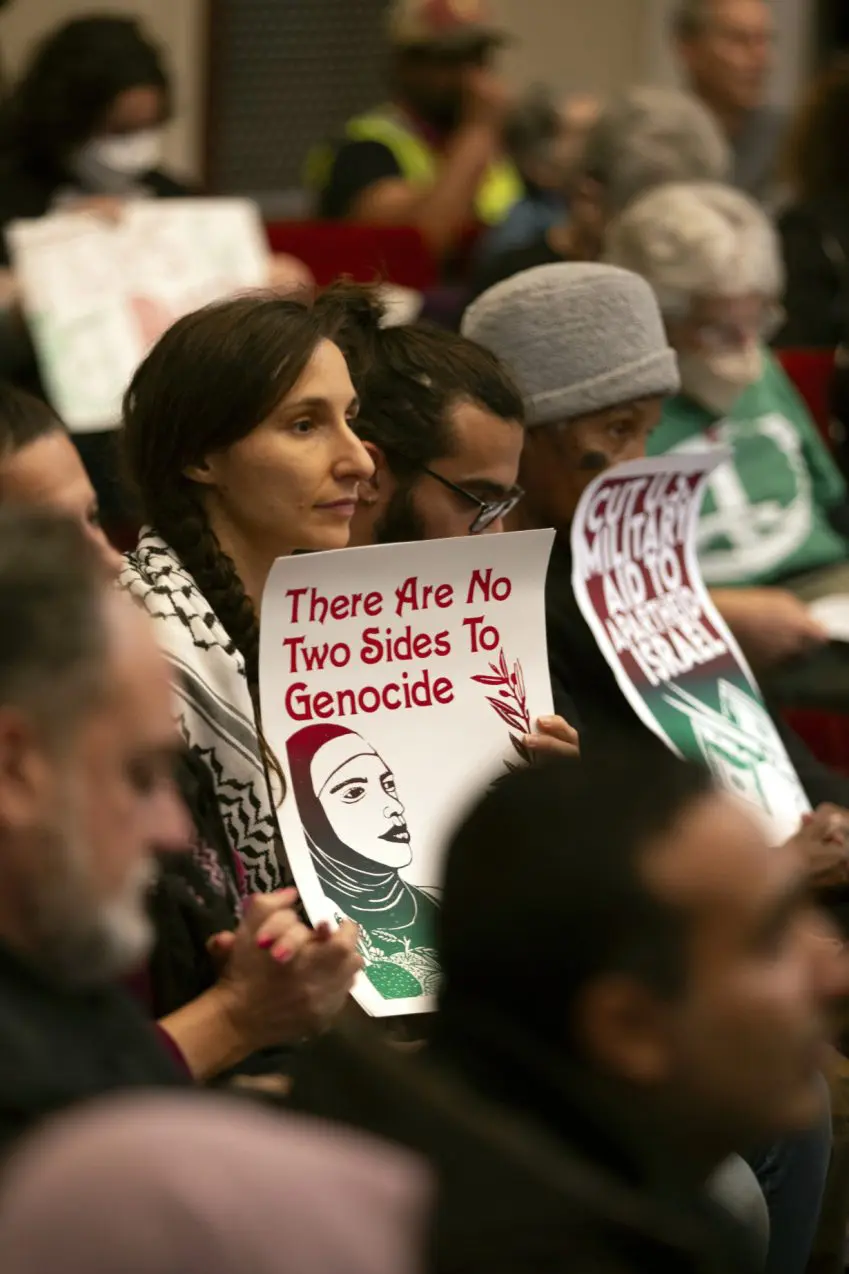

 UK inflation unexpectedly eases in December, which could reduce pressure in bond markets
UK inflation unexpectedly eases in December, which could reduce pressure in bond markets
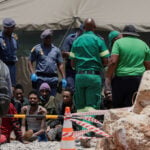 Body count from South African mine siege rises to 60
Body count from South African mine siege rises to 60
 US importers rush in goods from China as Trump tariff threat looms
US importers rush in goods from China as Trump tariff threat looms
 Novak Djokovic breaks a tie with Roger Federer for the most Grand Slam matches in tennis history
Novak Djokovic breaks a tie with Roger Federer for the most Grand Slam matches in tennis history
 China's RedNote: what you need to know about the app TikTok users are flocking to
China's RedNote: what you need to know about the app TikTok users are flocking to
 British author Neil Gaiman denies ever engaging in non-consensual sex as more accusers come forward
British author Neil Gaiman denies ever engaging in non-consensual sex as more accusers come forward
